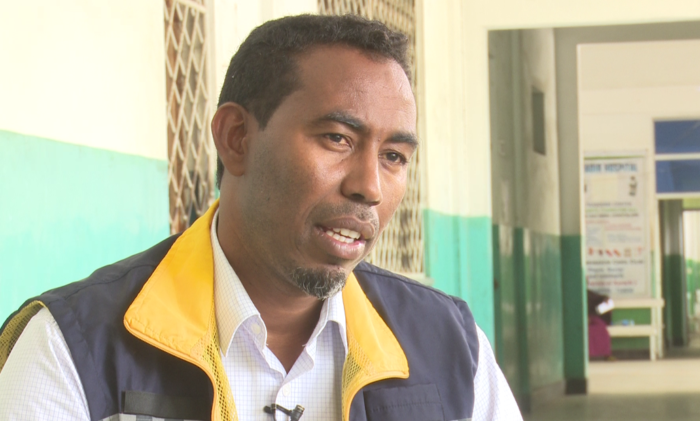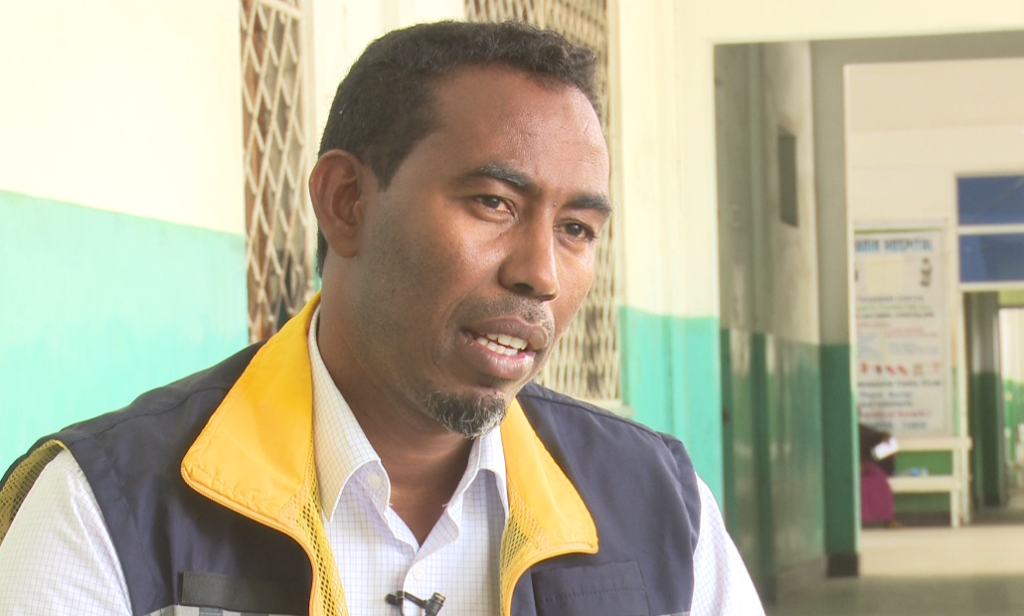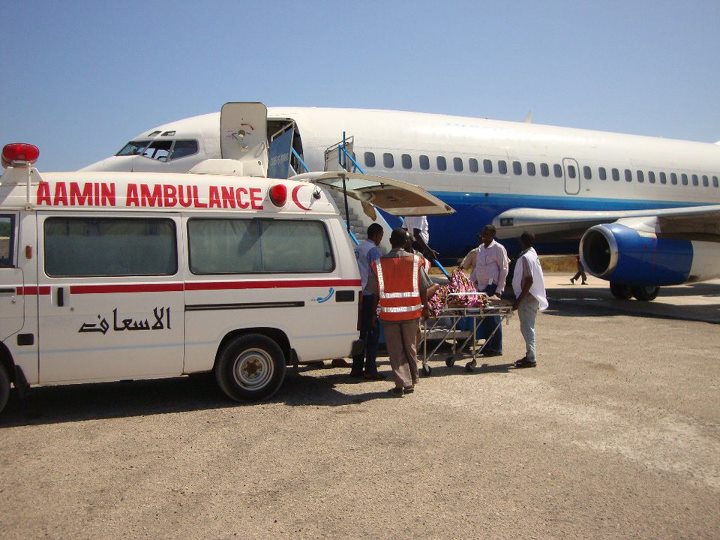They were screaming for help, we had to act fast but carefully


People were screaming for help. Fire engulfed the whole scene. Some trapped and incinerated inside cars, body parts strewn all over the place. It was the most terrible attack for the ten years we have been serving our society.
Dr. Abdulkadir Abdirahman Aden the founder and director of Aamin Ambulance and his team landed at the Zope Junction shortly after the truck bomb went off. This was not going to be like any other rescue operation they had conducted since heeding to the call for emergency medical service ten years ago.
Everyone needed help but that help was not coming as fast and easy as they would expect. “People were burning inside cars and each one calling for help. We needed to move in first but with care also not to cause more harm.”
It was difficult to distinguish between male and female bodies. The hospitals were getting packed and more casualties were being recorded.
With a team of 30 emergency staff and five others in the logistics departments, Dr. Aden worked round the clock ensuring all victims of the attack whether dead or alive were evacuated from the scene.
“I bought the first ambulance car from my personal savings and later went to solicit funds from the local Somali business people and university students to donate $1 monthly to pay maintenance expenses,” Dr. Aden told Goobjoog News.

Providing free medical emergency ambulance services in Mogadishu is not mean feat for Aamin Ambulance but the sacrifices made by a team working on voluntary basis have gone a long way in providing much needed ambulance services in the city and easing the burden of families having to transport their own to hospitals in case of emergency cases as the October 14 tragedy.
“We are now installing communication systems to enable us send emergency alerts to hospitals so that they can know what cases to expect,” said Dr. Aden.
We experience systems breakdowns because of so many calls as families ask about their kin during such attacks.
The road network in Mogadishu makes it even much more difficult for Aamin’s teams to access emergency scenes while road users have little regard for emergency situations. “The most challenging thing for us to deal with is the road access. Sometimes there is traffic jam. We request traffic department to educate the drivers on the rights of ambulance on the roads.
Across the city Dr. Abdi Farah Shaafi and his team worked round the clock attending to victims of the attack as hospitals became overwhelmed. “What happened on 14th October is something that shook the Somali community and created heavy especially the medial fraternity. It happened afternoon session and we stopped all work. It took us several days and with the grace of Allah, we succeeded in the mission for being awake for 24 hrs.
We were inspired to work round the clock by the voluntary spirit of young people in responding to the situation and the blood donors who made sure we had enough blood in our banks.